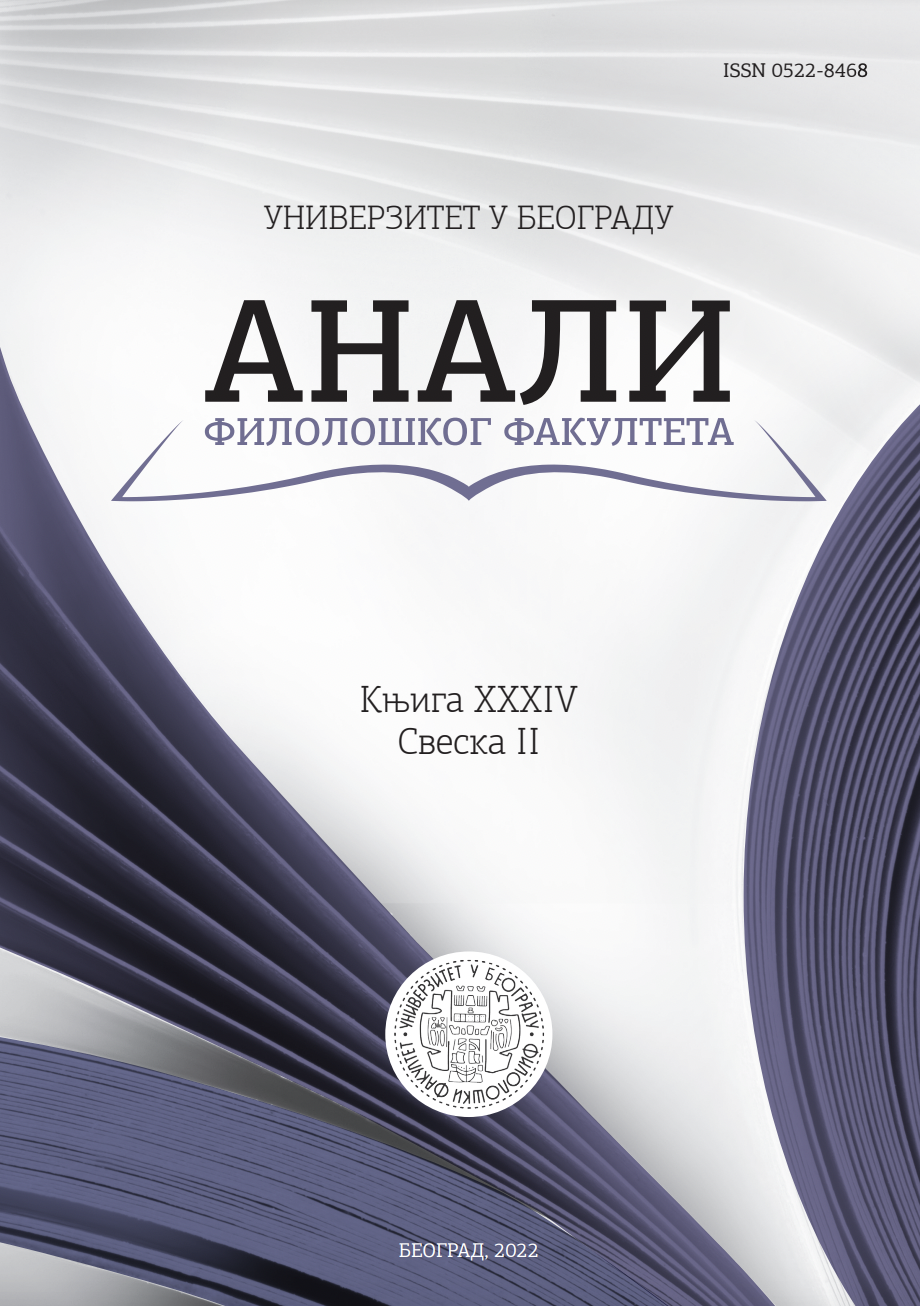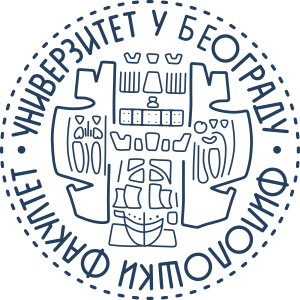Književno iskustvo italijanskog futurizma u časopisu Zenit
DOI:
https://doi.org/10.18485/analiff.2022.34.2.11Keywords:
zenitizam, italijanska književnost, avangarda, intertekstualnost, uporedne studije, futurizam, književni pravci treće decenije XX vekaAbstract
U ovom prilogu bavićemo se osobenostima dvaju najvažnijih avangardnih pokreta u Italiji i Jugoslaviji: futurizma i zenitizma. Futurizam, kao pokret koji je snažno uticao na evropsku avangardnu scenu u prve dve decenije XX veka, karakteriše radikalno odbacivanje romantičarskg patosa i veličanja prošlosti, kao i oduševljenje produktima modernog sveta, ali i ratom kao futurističkim sredstvom za čišćenje od prošlosti. Odbacivanje kanona, normi i literarnih pravila, veličanje tehnike i tehnologije, postaju osnovnim obeležjem evropskih avangardnih pokreta na koje, pak, iskustvo Velikog rata ostavlja neizbrisiv trag, potpuno drugačije nego u drugoj fazi italijanskog futurizma. Zenitizam je autentični jugoslovenski pokret koji usvaja i promoviše vrednosti radikalne avangardne književnosti, između ostalog i futurizma, promovisan i oblikovan kroz manifeste njegovog tvorca Ljubomira Micića u časopisu Zenit. U radu ćemo prikazati i analizirati književne tvorevine italijanske futurističke književnosti objavljene u pomenutom časopisu i kroz komparativni, odnosno intertekstualni pristup, pokušati da ukažemo na ulogu i uticaj italijanskog futurizma u formiranju zenitističke poetike i ideologije.
Downloads
Published
How to Cite
Issue
Section
License

This work is licensed under a Creative Commons Attribution-ShareAlike 4.0 International License.
Authors who publish with this journal agree to the following terms:
- Authors are confirming that they are the authors of the submitting article, which will be published (print and online) in the journal Anali filološkog fakulteta by the Faculty of Philology, University of Belgrade (Faculty of Philology, Studentski trg 3, 11000 Belgrade, Serbia). Author’s name will be evident in the printed article in the journal. All decisions regarding layout and distribution of the work are in hands of the publisher.
- Authors guarantee that the work is their own original creation and does not infringe any statutory or common-law copyright or any proprietary right of any third party. In case of claims by third parties, authors commit their self to defend the interests of the publisher, and shall cover any potential costs.
- Authors retain copyright and grant the journal right of first publication with the work simultaneously licensed under a Creative Commons Attribution-ShareAlike 4.0 International License that allows others to share the work with an acknowledgement of the work's authorship and initial publication in this journal.
- Authors are able to enter into separate, additional contractual arrangements for the non-exclusive distribution of the journal's published version of the work (e.g., post it to an institutional repository or publish it in a book), with an acknowledgement of its initial publication in this journal.
- Authors are permitted and encouraged to post their work online (e.g., in institutional repositories or on their website) prior to and during the submission process, as it can lead to productive exchanges, as well as earlier and greater citation of published work.





